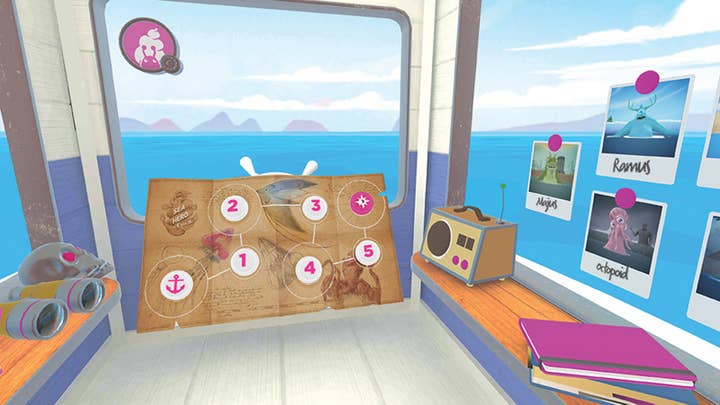Mobile VR game Sea Hero Quest generates 1,700 hours of research into Alzheimer's
Researchers claim every two minutes of gameplay is equal to five hours of lab-based studies
A new study has shown that a virtual reality game designed to identify those genetically at higher risk of Alzheimer's is producing significant and valuable data.
Sea Hero Quest is a mobile VR game developed by Glitchers in partnership with Deutsche Telekom, Alzheimer's Research UK, University College London and the University of East Anglia.
The latter has published results of its research in journal PNAS, with a press release claiming they were able to translate every 0.5 seconds of gameplay into useful data. And every two minutes is reportedly equal to five hours of lab-based research.
With more than three million people downloading and playing the game since it launched three years ago, Sea Hero Quest has generated more than 1,700 years' worth of lab-based research.
One of the first symptoms of Alzheimer's is loss of navigational skills, so much of Sea Hero Quest is spent challenging players to follows charts and directions, and later remember those without the use of a map.
The UEA team focused on data from 27,108 UK players aged between 50 and 75, which is the age group most vulnerable to the degenerative condition. This was compared with a smaller group of 60 people undergoing lab-based genetic testing.
In the lab group, 31 participants carried the APOE4 gene -- which makes people three times more likely to be affected by Alzheimer's and potentially develop the disease at younger ages.
UEA's Professor Michael Hornberger said the APOE4 carriers performed worse on the game's spatial navigation tasks, taking less efficient routes through Sea Hero Quest's world.
"This is really important because these are people with no memory problems," he said. "Meanwhile, those without the APOE4 gene travelled roughly the same distance as the 27,000 people forming the baseline score. This difference in performance was particularly pronounced where the space to navigate was large and open.
"It means that we can detect people who are at genetic risk of Alzheimer's based on how they play the game."

